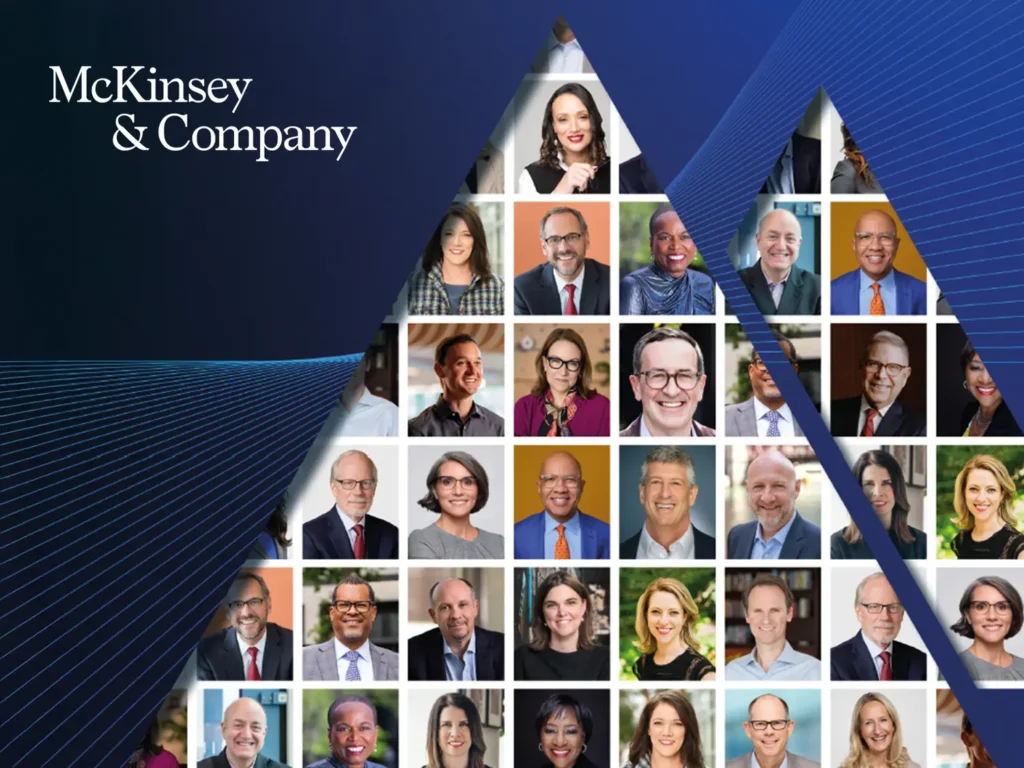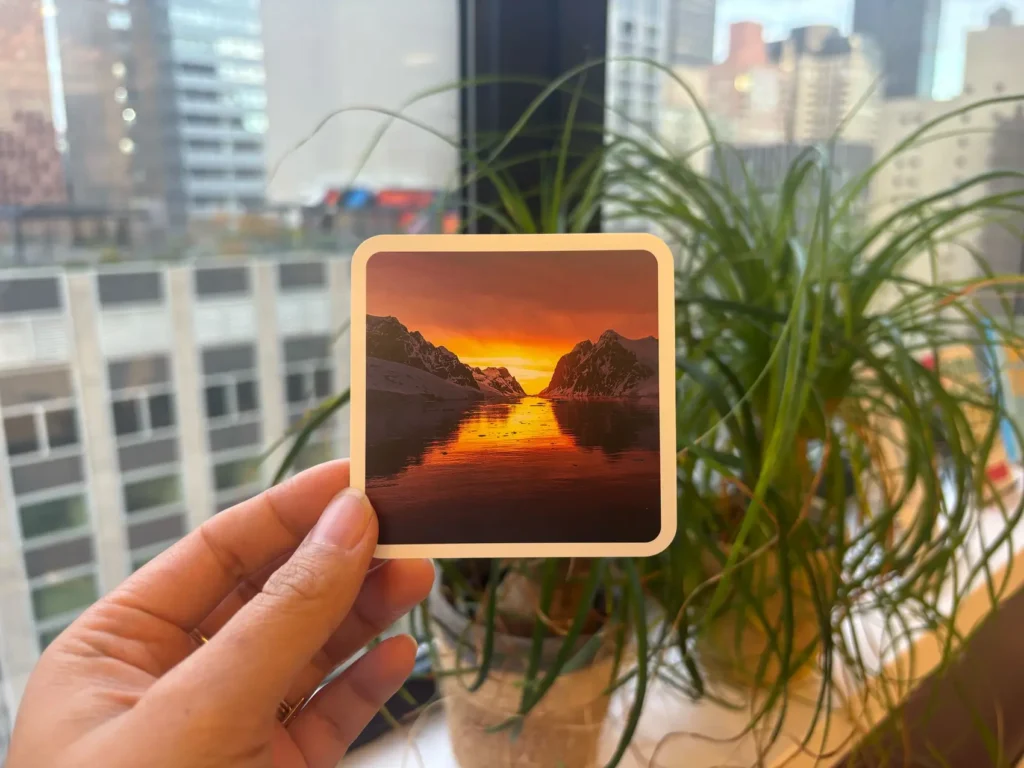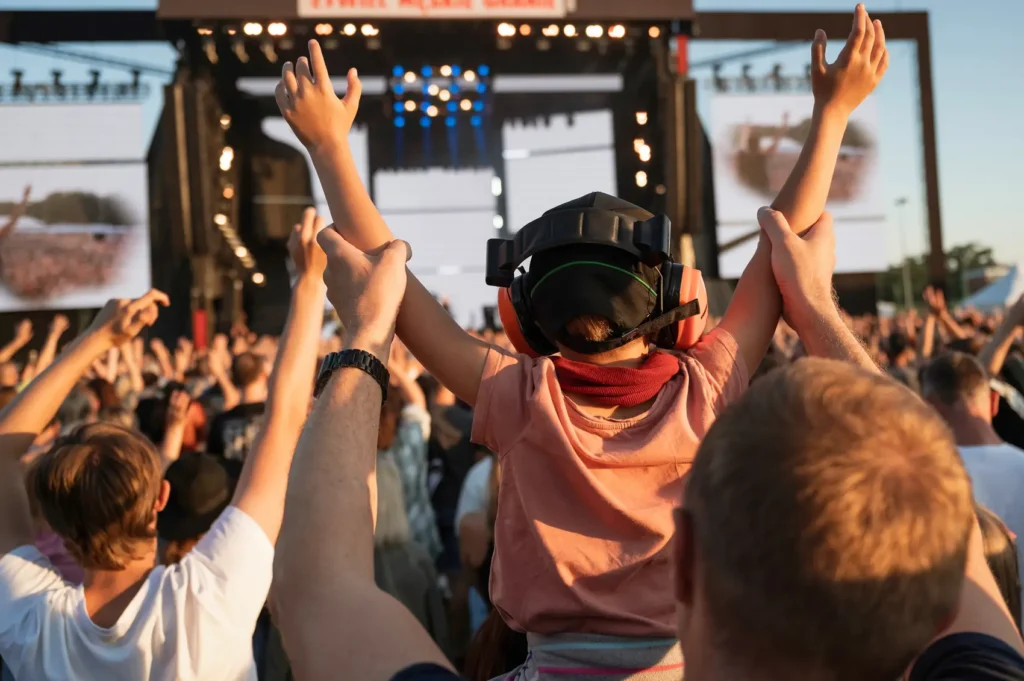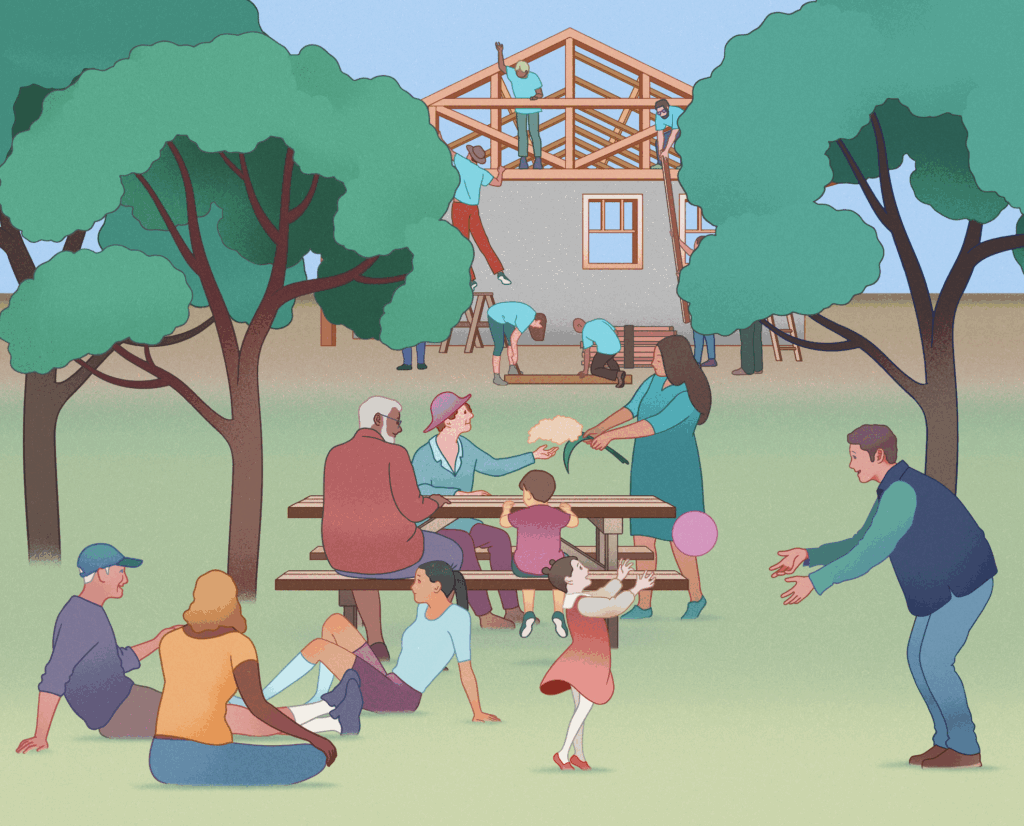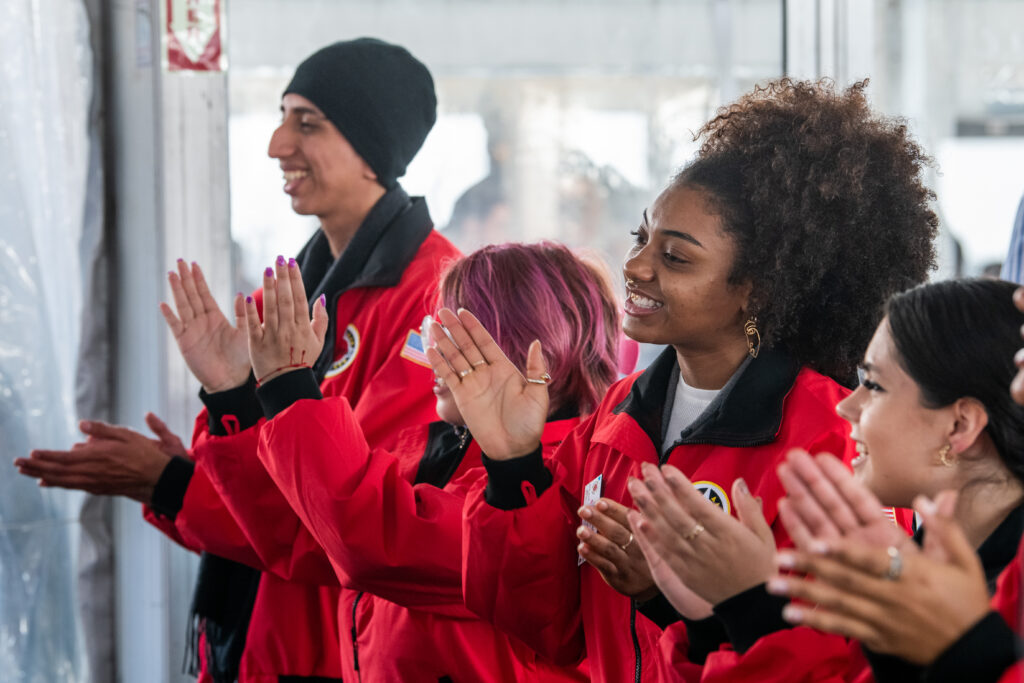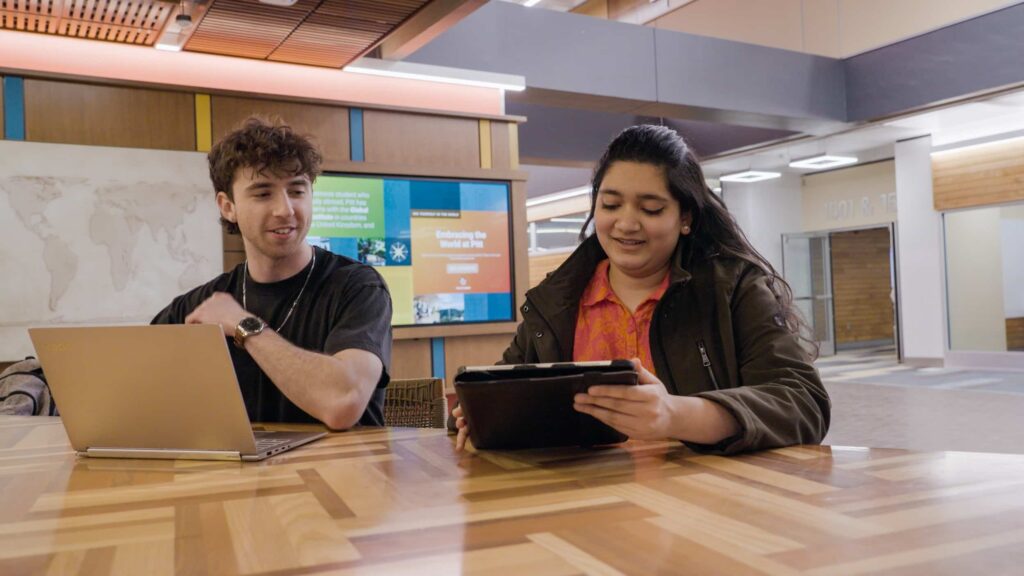I’m writing this sitting in the window seat of an airplane, looking out at the cloud cover below, and my mind turns to Joni Mitchell’s “Both Sides Now.” The lyrics begin with clouds, then turn to love, then life, with each verse juxtaposing the hopefulness and naïveté of youth with the wisdom and disillusionment that come from going through all the hard times life has to offer. Yet, even with the benefit of perspective, Mitchell still reaches for the beauty of optimism and idealism. “From win and lose and still somehow/It’s life’s illusions I recall,” goes a refrain in the last verse.
You may have seen Mitchell’s return to the stage to perform this iconic melody at the Grammy’s earlier this month. It was reminiscent of her surprise performance at the Newport Folk Festival in 2022, marking her first public musical appearance after a near-fatal incident seven years prior when she lost her ability to speak, walk, and play the guitar.
Listening to Mitchell sing “Both Sides Now” on the other side of a debilitating brain aneurysm brings a new meaning and texture to the song. Her voice, filled with wisdom and grace, swells our hearts with empathetic pain and promise. “Something’s lost, but something’s gained/In living every day,” rings truer every time I listen to Mitchell’s latest rendition.

What many people may not know is the influential role singer-songwriter Brandi Carlile had in Mitchell’s comeback. During Mitchell’s recovery, Carlile organized what she called “Joni’s Jams” — monthly jam sessions in Mitchell’s living room where musicians of all types at Carlile’s invitation would sing with Mitchell her music, helping her to regain the vocal and instrumental ability she had lost.
There was fulfillment and reciprocity for Carlile in these jam sessions, too. “Joni. I’ll never know where to start,” wrote Carlile in her memoir, “Broken Horses,” about the significance of their friendship. “In your quiet wisdom, you made me loud enough to drown out all other voices and pointed me toward the artist inside me. It’s never just music.”
I’ve looked at love from both sides now
From give and take and still somehow
It’s love’s illusions that I recall
I really don’t know love
Really don’t know love at all
At both Newport and the Grammys, Carlile was right by Mitchell’s side. Watch how Carlile looks at and sings with Mitchell: their intergenerational relationship demonstrates the power of mutuality, care, love, deference, respect, and pride. Two folk singers, at different stages of life, show up and depend on one another. We are witness to seeing life from both sides now.
We are conditioned to think of love within the limited boundary of romantic and parental love. But that leaves out a range of loving experiences we encounter throughout life. In our culture, platonic love – like the one between Carlile and Mitchell – is rarely modeled, elevated, acknowledged, and celebrated.
And yet, a friendship like this, wherein one sees the other so clearly, the reflection of who you are in their eyes, allows you to understand yourself better. That’s what it feels like to be known. And to be known is to be loved.
Talking about love in a professional setting can make a person squirm in their seat, but thankfully, it did not stop the topic from coming up in my recent conversation with Michael Brown, Chief Architect of Civic Commons, the first time we met.
Through a mutual friend, Michael and I were encouraged to connect as kindred spirits. With Michael’s work building communities of belonging in the Pacific Northwest and our work at Einhorn Collaborative spreading the science and practices of social connection and cohesion, in our first conversation, we talked about love.
The kind of love that dispels the pernicious lie we tell ourselves that if we just think or work harder, we can figure out [FILL IN THE BLANK] all on our own because we don’t need anyone’s help.
The kind of love that breaks us open to seeing ourselves more clearly because someone else reflects our gifts back to us.
The kind of love that makes us want to go outside of our comfort zones and feel inspired to take action in service of the greater good.
It’s what Reverend Jacqui Lewis talks about from her pulpit and in her book, “Fierce Love: A Bold Path to Ferocious Courage and Rule-Breaking Kindness That Can Heal the World.”
After my conversation with Michael, I wondered if those working to improve the health of our society and democracy could embrace the concept of love more boldly. What solutions could arise when we talk about tending to social ties and bridging divides through the lens of love? What kind of future could we build if we love each and every person we encounter, even when we deeply disagree on the most contentious issues?
What keeps us from seeing each other’s humanity and dignity and talking about love in this way?
This May, for our partners in philanthropy, we have an opportunity to practice the all-encompassing kind of love that Michael and I talked about and our sector was named after — the love of humanity (and not just the humans we like). I hope you will join me at the Council on Foundations’ Building Together gathering in Chicago, May 6-9, to develop strategies and practice skills to navigate differences of opinions, values, and beliefs within our organizations, with grantee partners, and in the communities we serve. This immersive gathering will allow us to learn and reflect on the role of philanthropy in reducing divisions and polarization and finding our way to a more socially cohesive society, where we all feel a sense of connection and belonging.
It feels a little cliché to talk about love in February, but I’m leaning into the discomfort. When the simple acts of turning on the news and scrolling through social media can drive us into a tizzy, maybe more love is exactly what we need.
In “Healing the Heart of Democracy: The Courage to Create a Politics Worthy of the Human Spirit,” Parker Palmer wrote about the positive effect of love in politics and our daily lives:
“Nothing that is worth doing can be achieved in our lifetime; therefore, we must be saved by hope. Nothing which is true or beautiful or good makes complete sense in any immediate context of history; therefore, we must be saved by faith. Nothing we do, however virtuous, can be accomplished alone; therefore, we are saved by love.”
If something can bring us out of the divide-and-conquer culture today, let it be love.

